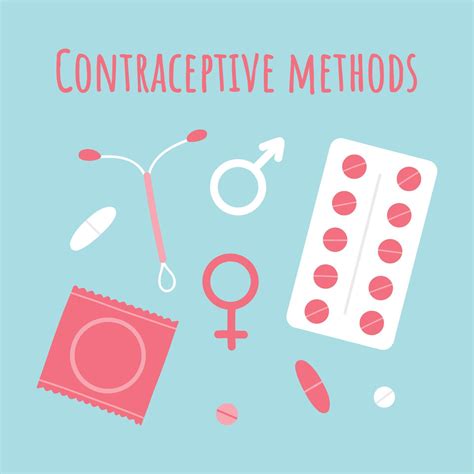Intro
Discover expert 5 Contraceptive Pill Tips, including birth control benefits, hormonal balance, and side effect management, to make informed decisions about reproductive health and family planning options.
The contraceptive pill, also known as birth control pills, has been a game-changer for women's reproductive health and freedom. With over 100 million women worldwide using the pill, it's essential to understand how to use it effectively and safely. Whether you're considering starting the pill or have been taking it for years, there are several tips and tricks to keep in mind. From choosing the right type of pill to managing potential side effects, we'll dive into the world of contraceptive pills and explore the top tips for getting the most out of this popular form of birth control.
For many women, the contraceptive pill is a convenient and reliable way to prevent pregnancy. However, with so many different types of pills available, it can be overwhelming to navigate the options. From combination pills to progestin-only pills, each type has its unique benefits and drawbacks. By understanding the different types of pills and how they work, women can make informed decisions about their reproductive health. Additionally, the pill has been shown to have numerous non-contraceptive benefits, including reducing the risk of certain cancers and alleviating symptoms of PMS.
As with any medication, there are potential side effects and risks associated with taking the contraceptive pill. Some women may experience nausea, breast tenderness, or mood changes, while others may be at a higher risk for blood clots or stroke. However, for most women, the benefits of the pill far outweigh the risks. By being aware of the potential side effects and taking steps to mitigate them, women can enjoy the convenience and reliability of the pill while maintaining their overall health and well-being. Whether you're a seasoned pill-taker or just starting out, there's always more to learn about this popular form of birth control.
Choosing the Right Contraceptive Pill

When choosing a contraceptive pill, it's essential to consider your individual needs and health status. Women who are over 35, smoke, or have a history of blood clots may need to avoid certain types of pills. Additionally, women who experience severe side effects, such as nausea or breast tenderness, may need to switch to a different type of pill. By working with your healthcare provider, you can find the right pill for your unique needs and enjoy the convenience and reliability of birth control.
Managing Potential Side Effects

More serious side effects, such as blood clots or stroke, are rare but can be life-threatening. Women who experience symptoms such as chest pain, shortness of breath, or severe headaches should seek medical attention immediately. By being aware of the potential risks and taking steps to mitigate them, women can enjoy the benefits of the pill while maintaining their overall health and well-being.
Non-Contraceptive Benefits of the Pill
The contraceptive pill has numerous non-contraceptive benefits, including reducing the risk of certain cancers, alleviating symptoms of PMS, and improving acne. The pill has been shown to reduce the risk of ovarian and endometrial cancer, as well as colorectal cancer. Additionally, the pill can help regulate menstrual cycles, reducing the risk of iron-deficiency anemia and improving overall reproductive health.Contraceptive Pill Tips and Tricks

Here are some additional tips for taking the contraceptive pill:
- Take the pill at the same time every day
- Use a pill reminder, such as a phone app or calendar
- Take the pill with food or at bedtime to reduce nausea
- Stay hydrated and exercise regularly to alleviate symptoms
- Practice stress-reducing techniques, such as meditation or deep breathing
Common Contraceptive Pill Myths

Here are some additional myths and misconceptions about the contraceptive pill:
- The pill causes weight gain
- The pill is only for young women
- The pill is 100% effective
- The pill can be used as an emergency contraceptive
- The pill is only available by prescription
Emergency Contraception
While the contraceptive pill is not intended for emergency contraception, there are other options available. Emergency contraceptive pills, such as Plan B, can be taken up to 72 hours after unprotected sex to prevent pregnancy. These pills work by delaying ovulation or preventing fertilization. Additionally, women can use copper IUDs as a form of emergency contraception, which can be inserted up to 5 days after unprotected sex.Contraceptive Pill and Lifestyle

Here are some additional tips for living with the contraceptive pill:
- Inform your healthcare provider about any other medications you are taking
- Be aware of potential interactions with other medications
- Use a backup form of birth control, such as condoms, to reduce the risk of STDs
- Stay hydrated and exercise regularly to alleviate symptoms
- Practice stress-reducing techniques, such as meditation or deep breathing
Contraceptive Pill and Relationships

Here are some additional tips for navigating relationships while taking the contraceptive pill:
- Communicate openly with your partner about your reproductive health
- Use a backup form of birth control, such as condoms, to reduce the risk of STDs
- Be aware of potential effects on libido or mood
- Practice stress-reducing techniques, such as meditation or deep breathing
- Prioritize intimacy and communication with your partner
What are the most common types of contraceptive pills?
+The most common types of contraceptive pills are combination pills, which contain both estrogen and progestin, and progestin-only pills, which contain only progestin.
How do I choose the right contraceptive pill for my needs?
+To choose the right contraceptive pill, consider your individual needs and health status, and work with your healthcare provider to find the best option for you.
What are the potential side effects of the contraceptive pill?
+Potential side effects of the contraceptive pill include nausea, breast tenderness, and mood changes, as well as more serious risks such as blood clots and stroke.
Can I use the contraceptive pill as emergency contraception?
+No, the contraceptive pill is not intended for emergency contraception. Instead, women can use emergency contraceptive pills, such as Plan B, or copper IUDs to prevent pregnancy after unprotected sex.
How does the contraceptive pill affect my lifestyle and relationships?
+The contraceptive pill can have a significant impact on a woman's lifestyle and relationships, providing greater freedom and confidence, but also potentially affecting libido or mood.
In conclusion, the contraceptive pill is a safe and effective form of birth control that can provide women with greater freedom and confidence. By understanding the different types of pills, managing potential side effects, and being aware of non-contraceptive benefits, women can make informed decisions about their reproductive health. Whether you're considering starting the pill or have been taking it for years, there's always more to learn about this popular form of birth control. We invite you to share your thoughts and experiences with the contraceptive pill in the comments below, and to explore our other resources on reproductive health and wellness.
